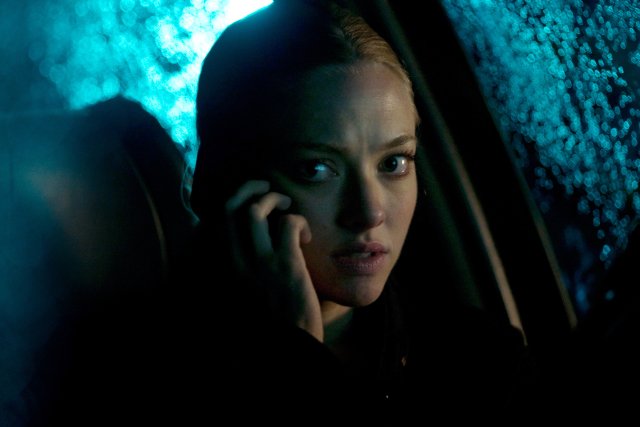Gone

A waitress named Jill (Amanda Seyfried)
lives with her sister Molly (Emily Wickersham). Jill regularly jogs
through the woods searching for a particular spot because she is
convinced that she was once kidnapped by a man and left in a hole in the
ground. She believes that she was one of the lucky ones to escape. None
of the police believe her and insist that she is simply paranoid.
When
Molly goes missing before her exam, when she is meant to be studying,
Jill believes that the same man who kidnapped her came into their house
and took her sister instead. Jill checks in with Molly's boyfriend but
he hasn't seen her and the police aren't any help either as they believe
she is lying again. Jill travels across town looking for clues but when
she pulls a gun on someone to interrogate them the police put a search
out on her.
Gone, a very minor thriller by director Heitor Dhalia, is unfortunately
one of those movies. If I could compare Gone to one movie it would be
Martha Marcy May Marlene (2011), as both films deal with the possibility
of trauma existing strictly as a result of imagination rather than
authentic memory. Don't mistaken this for high praise though as this is
lacking the same level of formal sophistication and subtlety.

Aside
from some scarce flashbacks, the paranoia is not represented with any
creative visual flair. Gone is photographed with drab, washed out tones
that are inexpressive of the film's themes or the contrast between
fiction and reality. Instead, we're served up thick slices of exposition
between two cops, neatly outlining what the 'rules' of this film will
be.
We're
told bluntly that there were no traces of Jill being kidnapped and
therefore she must be lying and everything must exist in her head.
Despite the lack of subtlety, this actually makes a good portion of the
film intriguing because of the unreliability of the protagonist. It is
less conventional in a Hollywood thriller to have a relationship as
unstable as this with the central character. We're uncertain about
whether to sympathise with Jill since her behaviour is reckless and much
of her dialogue is lies as she tries to extract information from people.
But this is entirely undone by a pitiful finale, so straightforward and
routine that it makes the rest of the film's handiwork flat-out
redundant. This film was begging for a great twist and payoff but it
just doesn't deliver. What a wasted opportunity.
It is
also in this final quarter that we see the limitations of the
characterisation too because Seyfried isn't given the time or the
interaction to develop Jill into anything more than hysterical.
Considering the subject matter of this film I expected this to be far
more intense and more psychologically complex.